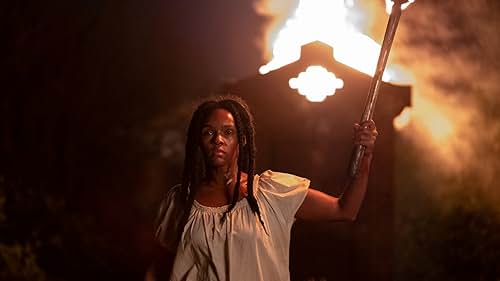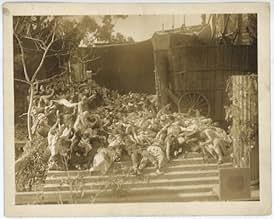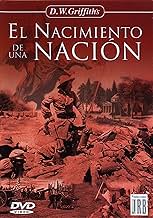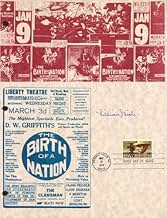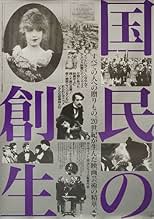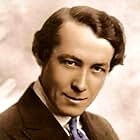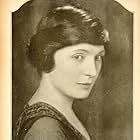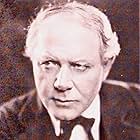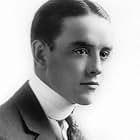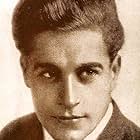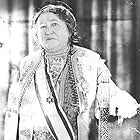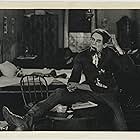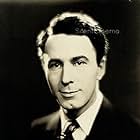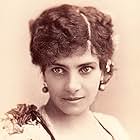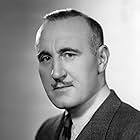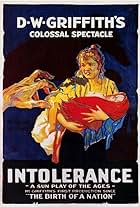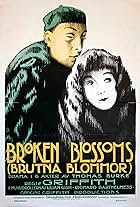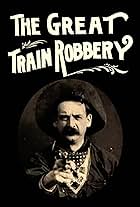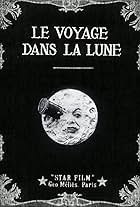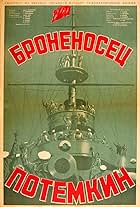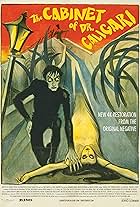The Stoneman family finds its friendship with the Camerons affected by the Civil War, both fighting in opposite armies. The development of the war in their lives plays through to Lincoln's a... Read allThe Stoneman family finds its friendship with the Camerons affected by the Civil War, both fighting in opposite armies. The development of the war in their lives plays through to Lincoln's assassination and the birth of the Ku Klux Klan.The Stoneman family finds its friendship with the Camerons affected by the Civil War, both fighting in opposite armies. The development of the war in their lives plays through to Lincoln's assassination and the birth of the Ku Klux Klan.
- Awards
- 2 wins
- Col. Ben Cameron aka The Little Colonel
- (as Henry Walthall)
- Silas Lynch - Mulatto Lieut. Governor
- (as George Seigmann)
- Jeff - The Blacksmith
- (as Wallace Reed)
- Abraham Lincoln
- (as Jos. Henabery)
- Wade Cameron - The Second Son
- (as J.A. Beringer)
- Duke Cameron - The Youngest Son
- (as John French)
Storyline
Did you know
- TriviaPresident Woodrow Wilson is famously rumored to have responded to the film with the remark: "It is like writing history with lightning. And my only regret is that it is all so terribly true." After the film became subject of controversy due to its heroic portrayal of the Ku Klux Klan, Wilson denied through his press secretary as to having known about the nature of the film before screening it at the White House, or having ever endorsed it. Nevertheless, Wilson's published works as a historian are closely aligned with the film's negative portrayal of Reconstruction (some of his writings are even quoted onscreen in certain prints of the film). Wilson was also notably a consistent pro-segregationist as President.
- GoofsCar tire tracks are visible in the KKK segment.
- Quotes
intertitle: While youth dances the night away, childhood and old age slumber.
- Crazy creditsThe following was listed in the opening credits: A PLEA FOR THE ART OF THE MOTION PICTURE: We do not fear censorship, for we have no wish to offend with improprieties or obscenities, but we do demand, as a right, the liberty to show the dark side of wrong, that we may illuminate the bright side of virtue - the same liberty that is conceeded to the art of the written word - that art to which we owe the Bible and the works of Shakespeare.
- Alternate versionsIn both 1921 and 1927, edited versions of the film were released to reflect current political viewpoints.
- ConnectionsEdited into The Revenge of Pancho Villa (1932)
This movie is not anti-Union, it is not pro-Antebellum south. It is anti-Black. The movie frames the ending of slavery as the beginning of the end for civilized society in the south, brought about by a conspiracy of carpet-baggers and scheming mulattos and blacks. The answers to this issue are redemptive violence by the Klu Klux Klan and a return to the master-servant relationship of slavery. The movie frames "the loyal soul" blacks who accepted their ownership and didn't want slavery to end as the redeemable memebers, while those that welcomed the end of slavery did so entirely to then turn that systemic violence back against the whites.
I genuinely do not believe that you can understand how malicious and hateful this movie is if you haven't seen it. One can have it described to them, one can know the individual scenes of hatred within, but until one has experienced the slow, pernicious leaking of racial hatred firsthand, it can't sink in how contemptible this movie is.
Technically important? Yes, nobody is denying that. Even as the movie's message becomes more and more evil, it is shot with a competency and ambition that it would take the rest of the industry decades to catch up to. It is worthy of preservation in that regard. But it is also entirely indicitave of the era that a movie which makes such strides (and was the first film to see great success in America and be played in the white house) is a movie which frames the idea of a white man being expected to shake a black man's hand as an indignity which exceeds lynchings and enslavement.
Details
Box office
- Budget
- $110,000 (estimated)
- Runtime3 hours 15 minutes
- Sound mix
- Aspect ratio
- 1.33 : 1
Contribute to this page


